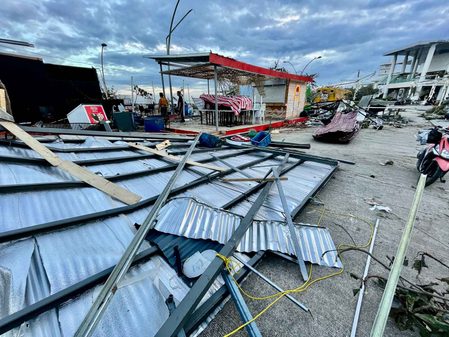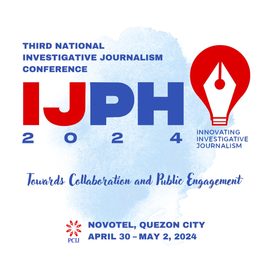SUMMARY
This is AI generated summarization, which may have errors. For context, always refer to the full article.
![[OPINION] Forgetting is not healing: A Cebuano journalist recalls Odette](https://www.rappler.com/tachyon/2022/12/Odette-the-holidays-and-memories.jpg)
If you ask a psychologist, they would tell you that forgetting is the body’s way of coping with trauma. But forgetting is not healing. Some wounds continue to fester, while some refuse to heal.
A sudden downpour here in the metro triggered a memory I had long suppressed. It’s a memory of decimated lands and a people neglected by their leaders.
This was December 16, 2021. The beginning of Simbang Gabi and five months before the 2022 general election. Typhoon Odette had made landfall.
A memory, but admittedly, a haze.
Now, I am writing from a dark terrace of a café in Mandaluyong City, thousands of miles from home. Today is a rainy Saturday morning. A year ago, one of the most powerful storms to hit the Philippines in a decade smashed several provinces in the Visayas and Mindanao, destroying thousands of homes and killing hundreds.
My young team of three reporters, including myself, covered this typhoon. For us journalists, there was no time to cry – even if we, like millions who call this region home, were not prepared. Our contact with our newsroom in Manila was intermittent. We were not sure where to get our supplies of food and water.
But as journalists, we had one job: to get the story out into the world. There were only a few of us that could.
This was the Philippines under former president Rodrigo Duterte: the repression against the media through threats, lawsuits, and death. Journalism, especially regional journalism, was a profession in dire straits. The previously free and comprehensive disaster coverage of ABS-CBN’s regional networks was off the air. Journalists were facing their own storm as they tried to cover one.
My team and I were about to cover our first major disaster assignment. And, unlike other disaster coverages, we would not have to parachute to this one as the storm was headed right for us. That a typhoon was brewing days before Odette made landfall, the residents we spoke with knew. But they did not know how bad it would get. If broadcasts did reach people in the storm’s path, perhaps the severity of the storm got lost in the scientific jargon of disasters and did not translate well to the Cebuano-speaking communities on the ground.
The morning after landfall, hundreds of residents were scrambling, desperately in search of a hot meal, drinking water, and diesel to power their generators, if they had one. For the lucky who had stocked up, there was no guarantee supplies would be enough to last for their families. The return to normalcy was as uncertain as the electricity in the region. What was certain was that there were children who went nearly a day without a clean drink of water, people without enough food, and not enough information as to how long it would take for survivors to get help.
Fast-forward a year later, I am in traffic-choked Metro Manila. The weather is calm, but the traffic of the holiday season in the capital region is anything but. This year, I tried to push myself to get in the holiday mood and dress up for our glam-themed Christmas party.
But it is a new era in Bongbong Marcos’ Philippines. I am not sure if my foundation and concealer is enough to cover up the sorrow, or if the free-flowing booze at the party was enough distraction for me to forget that a year ago today, my home province was nearly destroyed.
As the inter-unit Christmas party competition kicked off, in my mind, I was back walking on the muddy and dark roads in Olango Island, a small fishing village island off of Mactan where almost all homes were destroyed or damaged. We crossed from Lapu-Lapu City on a small motor banca last New Year’s Eve, as all ports had been destroyed in the storm, to check for ourselves just how bad the damage was.
I remember meeting Loida Inoc, a mother of seven, and how she lost Armand, her husband, when a tin roof blew off a neighbor’s house and smashed his head. I remember the farmers in south Cebu who lost all of their livestock and crops in the storm. I remember the residents of Manjuyod, Negros Oriental, who had to travel over 60 kilometers for water.
When survivors have to wait weeks, even months, for help, I wonder if our leaders remember them.
I remember the over 400 who died in that storm. While the number of dead may not seem like much compared to the 6,000 of 2013’s Super Typhoon Yolanda, one death is still one too many.
Things look normal on the surface nowadays, save for a few buildings where structural damage remains visible. But wounds continue to fester beneath the facade of normalcy in places where Odette struck.
It’s easy, then, for a nation, like me, to forget. We are a country of short memories, after all, as Odette and the 2022 election has shown us. Perhaps our forgetfulness is our resilience, and it’s our collective way of dealing with trauma.
But as we anticipate new storms ahead, both literal and political ones, we should not forget, and we must carry with us the lessons of the harshest storms we’ve already survived. – Rappler.com
Add a comment
How does this make you feel?






There are no comments yet. Add your comment to start the conversation.